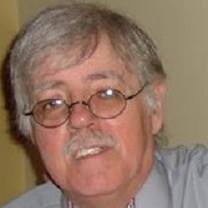There is a kind of hush, that started with a muted gasp, that came from whispers of Cheney assassination squads, murmured by Seymour Hersh during topic "America's Constitutional Crisis" at the University of Minnesota on March 10, 2009.
"It's an executive assassination ring essentially, and it's been going on and on and on," Hersh stated. "Under President Bush's authority, they've been going into countries, not talking to the ambassador or the CIA station chief, and finding people on a list and executing them and leaving. That's been going on, in the name of all of us." Source: rawstory/March_11_2009.
Mr Hersh made reference to a March 9, 2009 New York Times story "U.S.Halted Some Raids in Afghanistan" that revealed "The commander of a secretive branch of America's Special Operations forces last month ordered a halt to most commando missions in Afghanistan, reflecting a growing concern that civilian deaths caused by American firepower are jeopardizing broader goals there."
But is this new news or old news, given fresh exposure after breaking through from new media to old media, like The Downing Street Memos that took the mainstream media years to embrace, and will it have any more influence on spurring genuine investigations, trials and judgements than Downing and the many other revelations that lingered online before going mainline?
Yet the New York Times printed a story headlined : "American Hit Squads: Rumsfeld Weighs Covert Activities by Military Units" back on August 12, 2002. Authors Thom Shanker and James Risen wrote: "Defense Secretary Donald H. Rumsfeld is considering ways to expand broadly the role of American Special Operations forces in the global campaign against terrorism, including sending them worldwide to capture or kill Al Qaeda leaders far from the battlefields of Afghanistan, according to Pentagon and intelligence officials". "Proposals now being discussed by Mr. Rumsfeld and senior military officers could ultimately lead Special Operations units to get more deeply involved in long-term covert operations in countries where the United States is not at open war and, in some cases, where the local government is not informed of their presence. This expansion of the military's involvement in clandestine activities could be justified, Pentagon officials believe, by defining it as "preparation of the battlefield" in a campaign against terrorism that knows no boundaries." The full article can be found here.
In a five page article for the New Yorker titled "Moving Targets" dated December 15, 2003, Seymour Hersh writes: "A new Special Forces group, designated Task Force 121, has been assembled from Army Delta Force members, Navy seals, and C.I.A. paramilitary operatives, with many additional personnel ordered to report by January. Its highest priority is the neutralization of the Baathist insurgents, by capture or assassination."
In the same article, Hersh reveals Israel's involvement in planning operations in Iraq: "According to American and Israeli military and intelligence officials, Israeli commandos and intelligence units have been working closely with their American counterparts at the Special Forces training base at Fort Bragg, North Carolina, and in Israel to help them prepare for operations in Iraq. Israeli commandos are expected to serve as ad-hoc advisers-again, in secret-when full-field operations begin."
Specifically mentioned in the New Yorker article is Under-Secretary of Defense for Intelligence Stephen Cambone. Hersh writes: "The rising star in Rumsfeld's Pentagon is Stephen Cambone, the Under-Secretary of Defense for Intelligence, who has been deeply involved in developing the new Special Forces approach....Cambone also shares Rumsfeld's views on how to fight terrorism. They both believe that the United States needs to become far more proactive in combatting terrorism, searching for terrorist leaders around the world and eliminating them."
In a December 9, 2003 Amy Goodman interview of Seymour Hersh, Hersh, speaking about Donald Rumsfeld, said, "And he has put in the Army positions of command people who are much more supportive of what he and some his aides want to do; that is work with the Israelis and others to begin killing people. And so, this is his show. I'm sure [the] President, Cheney. They all work very closely together. I'm not sure where the C.I.A. is on it."
Did the foundation of special ops assassination squads targeting terrorist leaders, that started with Rumsfeld, eventually morph into a personal killing squad for Dick Cheney once Rumsfeld was gone? In the Minnesota symposium, Hersh said, "Right now, today, there was a story in the New York Times that, if you read it carefully, mentioned something known as the Joint Special Operations Command. JSOC it's called. It is a special wing of our special operations community that is set up independently. They do not report to anybody, except in the Bush-Cheney days, they reported directly to the Cheney office. They did not report to the chairman of the joint chiefs of staff or to Mr. [Robert] Gates, the secretary of defense. They reported directly to him. ... "
Perhaps Rumsfeld only had High Value Targets assassinated via special squads and unmanned but man-controled drones. Perhaps the targets were limited to Iraq and Afghanistan and the few hostile countries surrounding. Perhaps the "collateral damage" was kept to a minimum, or not. Once in Cheney's exclusive control, however, did the disciplined list give way to the broader convenience for the Vice-President? Were political and personal enemies of himself and Bush added? Who else in the world who may have been a threat to Cheney's warmongering, even to his personal and political survival, may have made the list?
Mr. Hersh seemed genuinely ill-at-ease over letting his cat out of the bag. A book planned within two years, Hersh wishes to discuss the Cheney assassination squads no further. Perhaps, for the sake of truth and justice, Congress should subpoena Mr. Hersh for a better preview of his future book.





